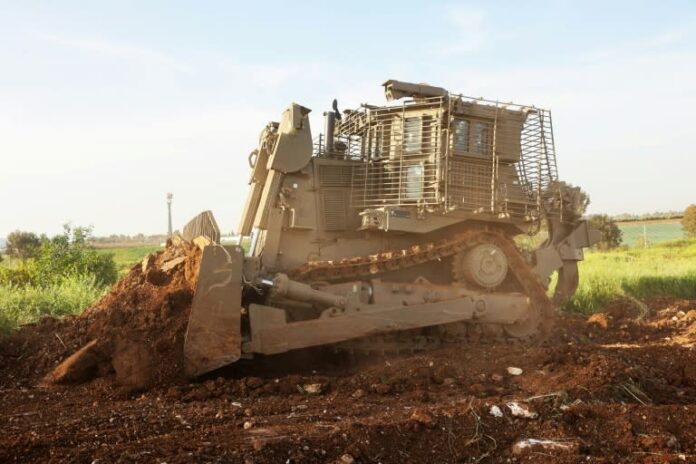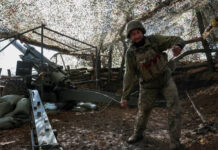What appeared to be an ordinary bulldozer at a central Israeli test site turned out to be a groundbreaking piece of military technology.
The Robdozer, an unmanned and armoured version of the Caterpillar D9, rolled forward without anyone in the driver’s seat—because it was being operated remotely from a military exhibition in Alabama, USA.
Developed by Israel Aerospace Industries (IAI), the Robdozer is part of a growing arsenal of remote-controlled and automated military tools.
The Israeli military has used the traditional D9 for decades to support frontline operations, such as clearing rubble, carving safe routes for advancing troops, and flattening terrain.
However, since the outbreak of war in Gaza in October 2023—and more recently, conflict along the Lebanese border—the army has leaned heavily on the Robdozer to reduce troop exposure and maintain operational efficiency.
“The aim is to take the person out of the danger zone,” said Rani, an IAI engineer involved in the Robdozer’s development.
“This system can handle the full range of engineering tasks, often better than a human operator.”
Israel’s use of such robotic technology is believed to be the first instance of large-scale deployment of remote-controlled combat machinery in an active war zone.
Military experts, including retired British army major Andrew Fox, see it as a transformative development. “It’s changing the paradigm,” Fox said. “You get the job done with far less risk to personnel.”
But the shift to unmanned systems raises serious ethical and legal questions. While current models are operated by humans, future versions could be autonomous.
Critics warn that machines may struggle to respond appropriately in complex, unpredictable situations without human oversight.
“This is the age of artificial intelligence, and it’s only natural that it extends into warfare,” said Tal Mimran, a legal scholar at the Hebrew University of Jerusalem.
“But October 7 showed us that even with advanced tech, human presence and judgment are still crucial.”
With battlefield automation rapidly advancing, the Robdozer may represent just the beginning of a new era in warfare—one where machines increasingly replace soldiers, and the rules of combat evolve alongside technology.



















